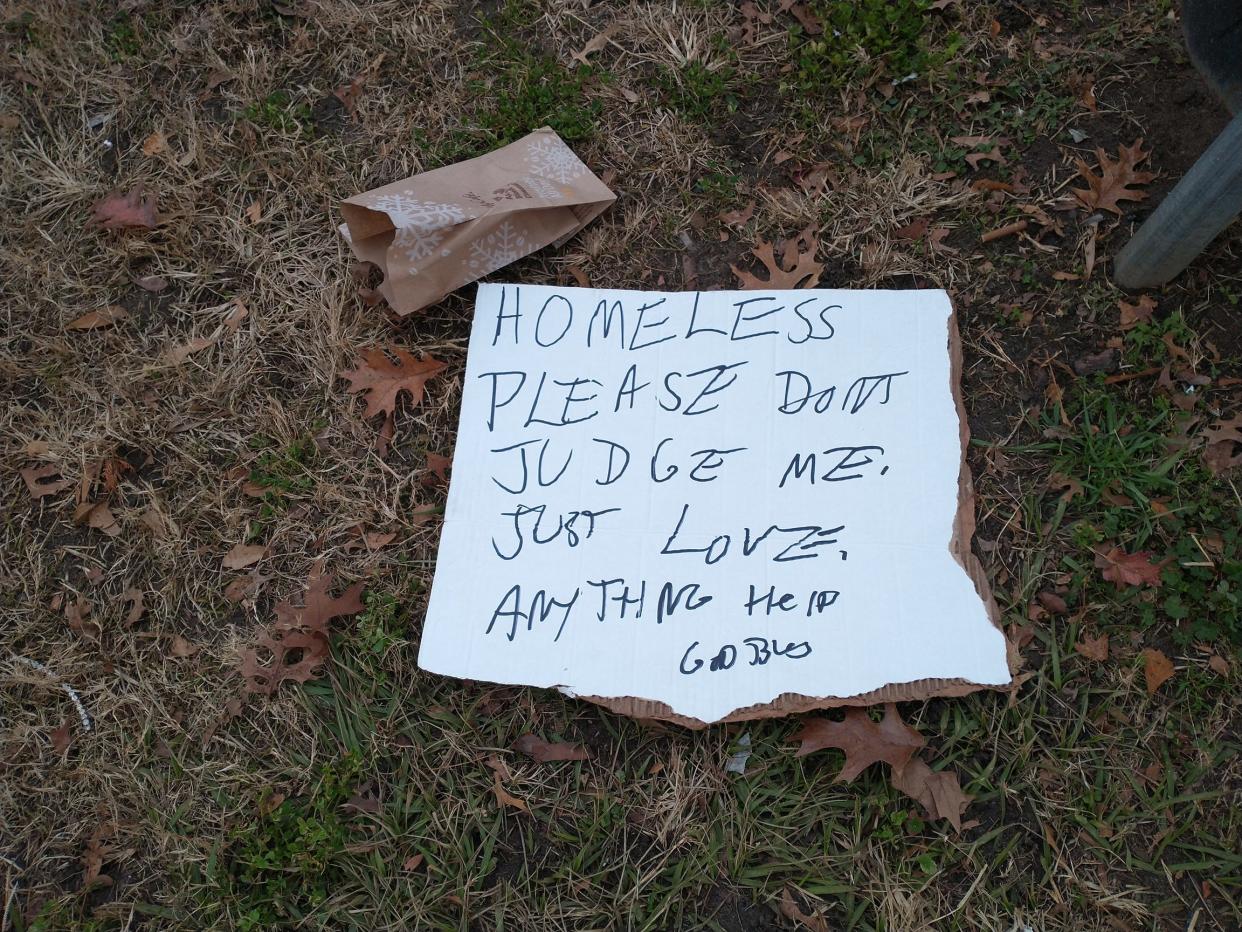Leon County may set hearing for ordinance to address homeless camps, solicitation

Leon County Commissioners are set to potentially tee up an ordinance which would curb issues connected to homelessness such as solicitation, camping or sleeping in certain areas and public urination and defecation.
At their first board meeting of the year Tuesday, commissioners will decide whether to set a public hearing on the draft ordinance which could come for a final vote by Feb. 8 if approved.
The intent of the ordinance is to address safety issues associated with the county’s homeless population and hopefully connect them to services through other partners.
More: Leon County moves ahead with local laws to address homeless camps, solicitation
However, there is concern that enacting such regulations could amount to criminalizing homelessness.
In an email looking to rally support against the measure, Karen Woodall, executive director for the Florida People’s Advocacy Center and longtime social services advocate, said the focus should instead be on creating housing, placing portable restrooms in known congregation areas while public restrooms are built, and establishing a government-staffed campground for people who may not want to go to a shelter.
“Please send the message to every Commissioner that law enforcement cannot solve the problem of homelessness which stems from poverty,” Woodall wrote. “Our elected officials at the City and County can, working together with service providers, the faith community, businesses and concerned residents of good will.”
► Read the full proposed ordinance here
When the idea first surfaced before the commission in December, commissioners voted 4-3, with Commissioners Kristin Dozier, Jimbo Jackson and Nick Maddox in opposition.
County Attorney Chasity O’Steen told commissioners that the Sheriff’s Office has ceased enforcement of panhandling ordinances because of federal court rulings that solicitation is a protected form of free speech. But, she said, the intent of crafting new ordinances seeks not to criminalize homelessness but instead certain actions that put a strain on service resources and law enforcement and pose a safety risk. Status and involuntary actions like sleep cannot be criminalized, O'Steen maintains, making the ordinance a narrowly focused endeavor.
Current ordinances prohibit camping except in designated campgrounds on Lake Talquin. The proposed drafts could prohibit camping or sleeping in certain areas, an issue that has been in federal litigation, but would have to include provisions for fair notice to be given about what conduct is prohibited and be enforceable when shelter is offered but refused. There are no Leon County ordinances addressing public urination or defecation.
Commissioners who supported the measure said, for them, the issue revolved around not only the safety and wellbeing of the general public but those experiencing homelessness and exploring every avenue to connect them with services. The concern is that left unchecked, the issues the ordinance looks to address may balloon out of control, according to county staff. It would constitute a “multi-faceted approach to proactively and lawfully addressing these activities.”
“These activities often intensify rapidly in communities if left unregulated, placing additional strain on public health, social service, and law enforcement resources to serve the homeless population as well as the community at-large,” staff wrote.
Soliciting
The proposed ordinance would make it illegal to hold a sign in a roadway median for any reason across the entire county. It would supersede a similar ordinance within the city limits and include a penalty of $15 per violation as prescribed in state statutes.
Camping or sleeping in certain public areas
The ordinance would bar camping in a public area or public right-of-way without the permission of the property owner. The proposal lays out alternatives to penalty in which a street outreach team member would assess need for sheltering or housing assistance. If the individual refuses shelter or has been offered or received shelter within the last 90 days, they may be cited with a misdemeanor violation.
Staff note that “the unsheltered individuals decline the Street Outreach Teams’ initial offers of housing assistance and multiple engagement efforts are required to build relationships and foster trust that will lead to the acceptance of services.” Enforcement could not occur before outreach efforts have been made. A conviction could result in a fine up to $500 and or 60 days in jail.
Public urination or defecation
The ordinance would make it unlawful to urinate or defecate in certain public areas not designated for use as a urinal or toilet. A proposed penalty would be a fine of $50.
Contact Karl Etters at ketters@tallahassee.com or @KarlEtters on Twitter.
Never miss a story: Subscribe to the Tallahassee Democrat using the link at the top of the page.
This article originally appeared on Tallahassee Democrat: Leon County moves forward with solicitation, camping, public urination ordinance

